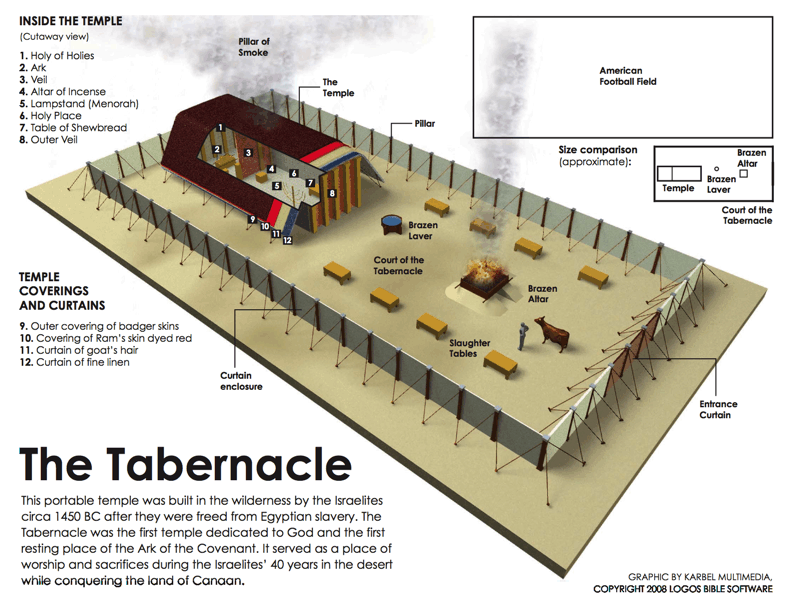Virtual Actuality – The Faith Hall of Fame
Faith is the opposite of virtual reality. In an electronicVR game, good movie or other setting, the aim is to convince you that something you see is real, when it is not.
Faith does the opposite. Faith tells us that what we cannot see is the reality.
Faith is not some cosmic force through which we can appropriate a good life, levitate light sabers, or speak cash into our wallets.
Faith is not Napoleon Hill’s affirmation: “Whatever the mind of man can conceive and and believe, it can achieve.”
Faith in God, is based on the character of God, and the degree we know that God is as good as His word. It is taking action on the promises of God with boldness and perseverance.
Simply Broken Out Summary / Thoughts
| Heb 11:1-3 |
The Essence of Faith – In connecting the dots of the Promise, we obtain approval from God. Through faith, all the markers, the hints and subtleties of which we are only given promises, are perceived and known to be reality. Think of an example, student. My own came when it dawned on me as a young Christian, after having pondered over the pre-Flood world described in Genesis, and trying to reconcile the length of life of the patriarchs to months or something else. After reading a tract by ICR I began to interpret the section as literal. At that realization, it all came into incredible focus and understanding; I could best understand the Bible (except when the genre compelled me otherwise) as a literal account, especially Genesis. And why not? After all, humanity derailed in the Garden of Eden when Adam & Eve were lured into not taking God’s Word literally. The worlds framed.. is better understood as the ages framed, God arranged these all in advance of the passage of time. |
| Heb 11:4-7 |
Faith before the Flood – This first testament is just that, a testament. Faith ripple repercussions throughout our circle of friends,(koinos) and through time, as we see here. Death does deaden the testament of faith. It also serves as a testament to the living, as Noah showed. His ark, built over a period of 120 years, probably far from sea, would be the object of ridicule, yet Noah persisted. Even now, looking back, he is mocked, denied, and belittled, as are we who take God’s word seriously. |
| Heb 11:8-12 |
The Faith of Abraham – Abraham takes faith to the next level by his actions. He acts radically, leaving family home and wealth, willing to sacrifice his son all on a promise from God. Reckoning on righteousness is here as well, Gen 15:6. Although he and Sarah faltered along the way (Gen 12:10-ff and Gen 20) God did not take away His promise. It was not contingent on Abraham. |
| Heb 11:13-16 |
The Objective of Faith; Heaven – The patriarchs (and our) imitation is of Abraham, for we are called like Abraham to come out of our “country” to a place we know little about save the promises has made in His word. We believe that this place is so much better, and God is thus pleased Heb 11:6 |
| Heb 11:17-22 |
The Faith of the Patriarchs – Part of the testimony of faith is its heritage throughout a family. A Godly and faithful parent givers the offspring a double advantage in life as a beacon and role model. The opposite is also sadly true. |
| Heb 11:23-29 |
The Faith of Moses – And Moses’ call to faith faith was re-enforced by constant meeting face to face. (Exo 34:29-ft) Moses too slipped in obedience, but his faith was resolute, under great pressure from his flock and his enemies. |
| Heb 11:30-38 |
Overcoming by Faith – Now here is a great encouragement. Often times we cluck at the foibles (the bad sides of) some these folks, Samson, Barak, for two examples. Yet, here they are in the faith hall of fame. So we should not be discouraged when we stumble; God knows we will, yet it does not impede our standing with God (except, of course when it remains unconfessed) but we keep our faith. This is a tremendous encouragement when the road gets rocky. |
| Heb 11:39-40 |
The Unity of Faith – And so, at the end of the age, we too will stand among the greats, having stood the test and endured just as they did, and celebrate that glorious day, and the glorious Savior who made that day possible. DON’T MISS THIS PARTY! |
Memory Verse – Without faith it is impossible to please Him, for he who comes to God must believe that He is and that He is a rewarder of those who seek Him. – Heb 11:6
Application – How will you live out what you have learned?
I am going to remember the human heroes of faith, who although they stumbled, were approved by God for their faith, and be encouraged by God’s approval.


